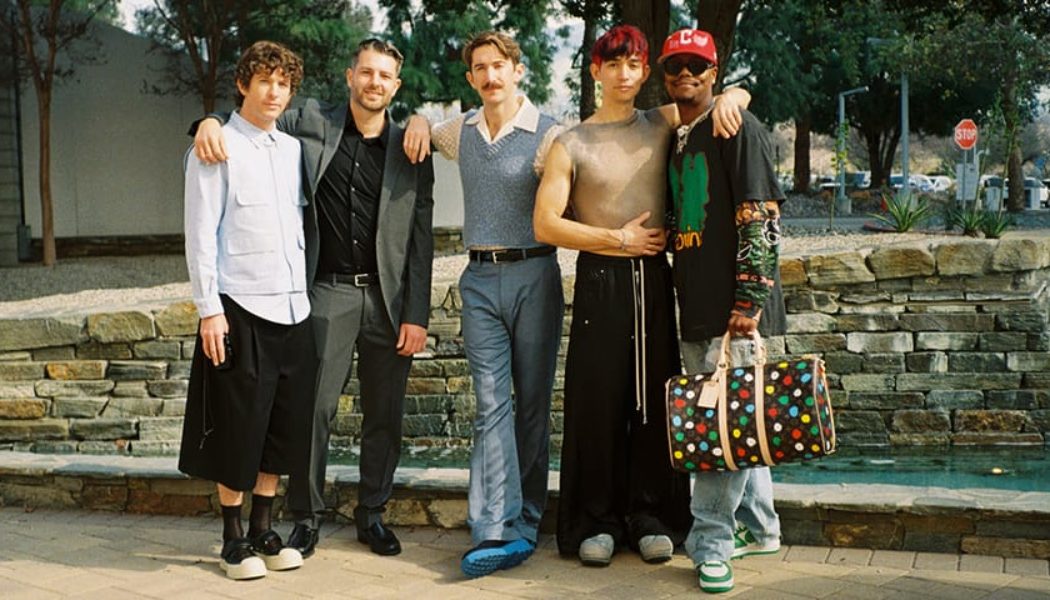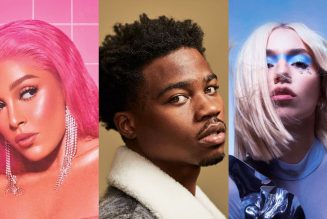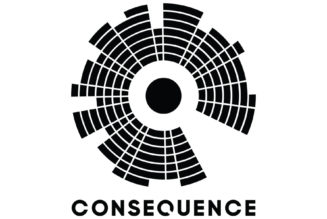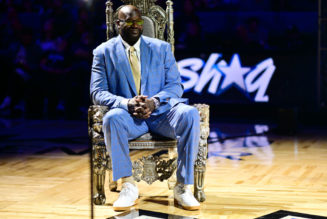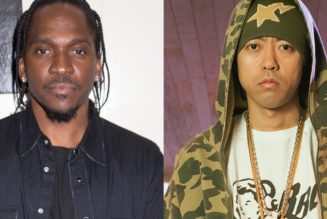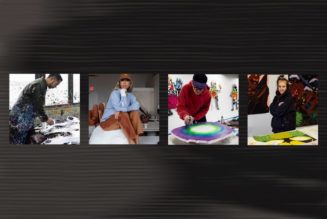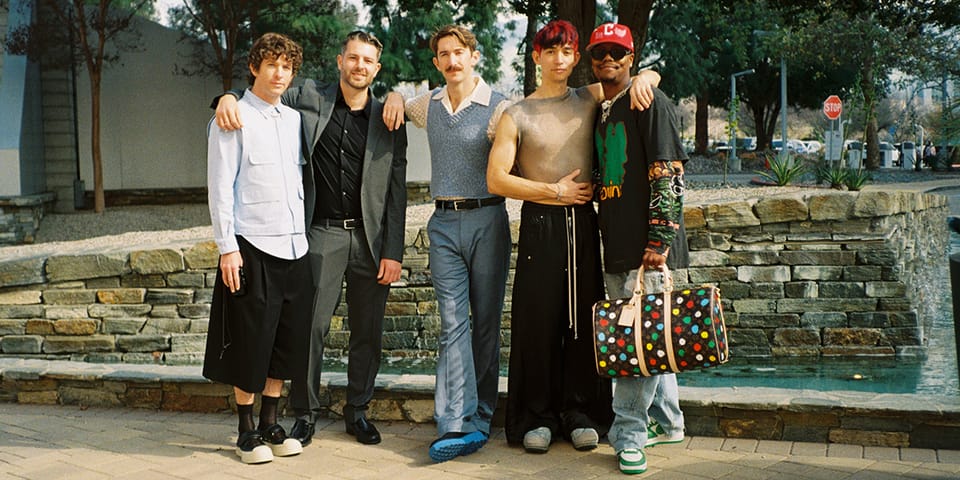
James Vitalo went all in when he entered the music industry. He only had seven days left in the school year, but he decided to leave high school and go on tour with a band to sell merch. As a “high school dropout with a chip on my shoulder who has nothing to fall back on,” that major life decision played a huge role in inspiring his path — one that’s always been all or nothing.
Prior to becoming an artist manager and the founder of Gold Theory Artists, which he launched just a little over a year ago, he sang for New York hardcore outfit Backtrack and met the guys from Turnstile and Terror (both of whom he would eventually manage) during Backtrack’s 11-year run as a full-time touring band. He eventually moved away from performing and became a booking agent for Turnstile, Breakdown, Killing Time, Soul Search, Incendiary and Sheer Terror, and officially shifted into management when Turnstile signed to Roadrunner Records in 2015.
Vitalo says his touring background is the cornerstone of his skill in working with artists who are on the road. Their shared experiences and mutual understanding of the struggles of touring not only connect them on a more intimate level, but also allows him to make the best possible decisions. “There’s a huge difference between an idea on paper and the reality of what that feels like on a day to day level,” he says. His bands’ schedules are planned 12 to 18 months in advance and involve more than just worldwide tours; he wants to ensure that they create interesting moments that also strike a balance between health and longevity, all the while taking the industry climate into consideration so that the rewards can be reaped in the long-term. “The priority is to protect the artist at all costs,” Vitalo shares, “to make sure I’m thinking 10 steps down the line for them and opening doors so they have all the keys to unlock the best version of themselves.”
In three words each, how would you describe your job to someone who isn’t familiar with the music industry?
That’s hard to put into three words, but my answer is Soldier/Coach/Friend. Recently, I had a band I work with send me that meme of the soldier taking a bunch of arrows to the back so their child could sleep at night in peace in response to a situation we dealt with overseas. No plan or opportunity is meaningful if someone’s suffering spiritually.
“The priority is to protect the artist at all costs.”
Can you run us through a day in your work life?
I like to mix it up in order to avoid feeling stuck or stagnant. I usually wake up around 7 a.m. and try to avoid going straight into my phone, but I can definitely fall for the trap. First thing I try to do is drink water and stretch. I normally like to be stationed at my desk at 8 a.m.
The night before, I usually write intentions or try to structure my day. I aim to have five to 10 proactive goals for the following day as the minimum, that way I don’t let my inbox — which is almost always someone else’s agenda — lead my day. I also like to work in 90-minute blocks. I’ll put 90 minutes aside where I only think about one band and will go through all my notes/thoughts/to-do list. It helps leave the headspace to have new ideas, and to make sure I’m carving out uninterrupted time to look at the full picture.
I also try to squeeze in a workout or some sort of physical activity. You can tell when you work with someone who doesn’t make time for themselves to have a physical release, and I can feel it in myself too.
In a perfect week where I’m not traveling, I’ll have longer days in my home office on Mondays and Wednesdays. On Tuesdays, I will drive up to Carpinteria [a small surf town in Santa Barbara County] and work with a much different style and pace, with a lot more phone calls and more time alone to think. On Thursdays, I’ll go work on the west side of Los Angeles: 90 minutes at a coffee shop then jump in the ocean, 90 minutes at another coffee shop then another ocean jump. Most people in music deal with a lot of headaches, and I feel like if I can get in the ocean a few times a week, I can deal with anything. It’s less about hanging on the beach and more of a spiritual recharge, and I can feel it in my body when that’s missing from my routine.
You work with several acts that are all in different phases of their careers. What are the more evident changes in your mindset or workflow when dealing with a myriad of artists?
It really comes down to the fact that everybody’s financial situation is different. As sh*tty as money can be, it’s freedom in a sense. When you don’t have financial pressure, you can make decisions differently. I have a responsibility to the few artists I work with to keep them financially protected, but there’s levels to that. To me, there’s nothing more liberating than having money be a part of the equation after you make the decision. Every time I’m in that situation, we come out on the better side of the deal. I always say to myself, “Do the right thing and the money will come.”
“If we’re doing what we love on our own terms and not having to entertain situations where we’re of trading time for money, then we’re successful.”
Tell us the most memorable experience you’ve had with one of your artists yet.
Coachella 2019 with Turnstile is up there for me. I’ve toured with those guys in so many different environments. We had worked so hard to get there, but there was a slight feeling of imposter syndrome because of the level of the other and our unique road to getting there. I met Franz [Lyons] and Daniel [Fang] in basements on tour, and being at Coachella with them for the first time was one of those moments I’ll never forget.
As an artist manager, what is your metric of success? When can you say that you’ve accomplished your goal for the artist?
It’s funny, because when a big moment comes in, sometimes we’ll say, “Can we tell our moms that we made it now?”
The metric of success is easy but saying the goal is accomplished is hard. If we’re doing what we love on our own terms and not having to entertain situations where we’re of trading time for money, then we’re successful. I need to be better at celebrating the highs, because a lot of times when we have an exciting moment I’m inspired to take that momentum and keep building, which can sometimes take me out of it the full experience.
When the outcome of a campaign doesn’t yield the results you and the team were hoping for, what’s usually the first course of action you take?
I’d say even with 10+ years in at this point, I’m new to the game. I’m lucky to have avoided that spot, but it’s inevitable, and that’s where character will show. Everyone wants to be your best friend when you have hot bands and things are going well, but how do you handle a dip in the business or a loss of momentum? My priority is always making great art and ensuring the artist is the best version of themselves. I have zero business writing the record, being in charge of the record mix, or writing the treatment for a music video, but I will say that I will fight tooth and nail for my artists while also keeping a level of positive energy throughout the process to make sure my guys are is protected and supported in the process of creating thir art.
What are the necessary first steps someone should take to enter a career in music in artist management?
Get in the van. Sleep on the floor. Do a lot of work for free. Give back to the community. Be prepared to deal with the most insane situations you could imagine. Find a great mentor who can show you the ropes.
What was the biggest challenge you’ve had to face so far, and how did you overcome it?
The challenges have been gnarly. A lot of violent situations over the years. Being robbed with bats, vans broken into, gear stolen, shows cancelled — all of those situations are crazy, but manageable. My biggest challenge is not letting myself get in the way. Management is impossible to understand unless you’re living it. I’m generally comfortable and used to being misunderstood, but when I stop prioritizing health, fitness and spirituality, it gets in the way of me being effective. That’s the biggest challenge and it’s always a different process to overcome it.
“Keeping the spirit of youth and feeding that just as much as you fill your head with numbers and deal points is what will separate you from the rest.”
What is one thing about your job that most people would find unexpected or surprising?
That I dropped out of high school and have never worked one day in an office.
Is there a secret to career longevity in this industry?
In music industry terms, I’m young, and I don’t think I know everything. But I firmly believe that keeping the spirit of youth and feeding that just as much as you fill your head with numbers and deal points is what will separate you from the rest. For me, it’s jumping in the ocean and playing baseball, but those are variables. Having those moments of release that keeps you young is what will keep me in the game for another 10 or 20 years.
What are some habits you follow regularly to always maintain a good headspace for work?
90 minutes on/20 minutes off, less Zooms and more phone calls done outside while walking, stretching for at least 10 minutes a day, always havinghave music on and being grateful that I work with amazing bands doing what I love.
What does a day off look like for you?
Sundays are generally slow, and I avoid going to shows on Sundays at all costs. Ideal situation is driving to the west side of LA and jumping in the ocean, bringing acai bowls and coffee home to have breakfast with my fiancé Katherine and dog Pepper, watching the Mets game on the couch and keeping the day open and relaxed.
How do you see your job evolving with the music industry in the next five years?
Beyond management, I’d love to curate a festival. Bringing different types of artists and people together is my favorite part of working in music.
If not music, what would you be doing?
I’d deliver pizza on a bike in New York City or look to be on the Citi Field grounds crew.
Stay tuned for more features with music industry professionals — from managers to sound engineers, stagehands and others; the people who make the music world go round without standing behind a microphone.
